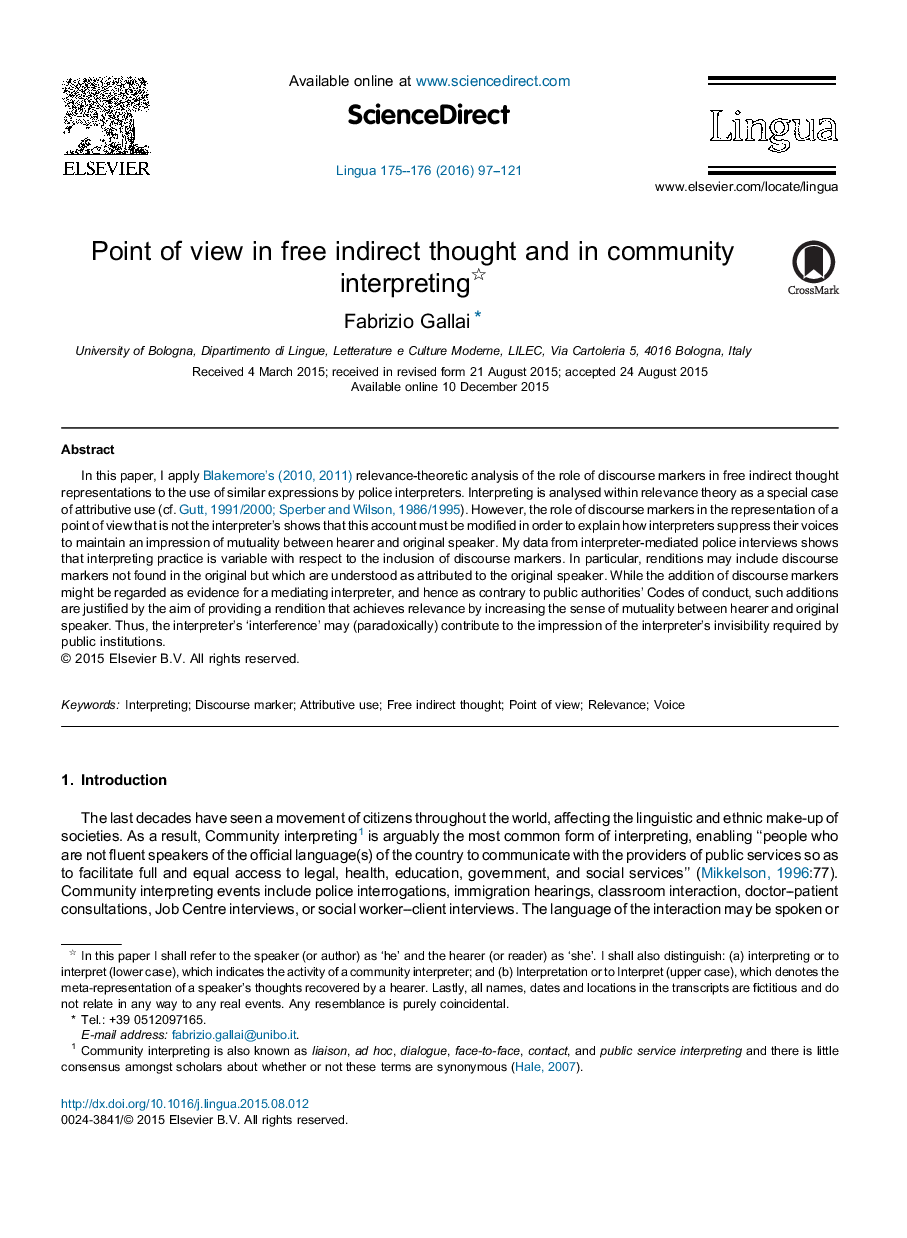| کد مقاله | کد نشریه | سال انتشار | مقاله انگلیسی | نسخه تمام متن |
|---|---|---|---|---|
| 935276 | 1475039 | 2016 | 25 صفحه PDF | دانلود رایگان |
• A relevance-theoretic analysis of interpreting.
• Draws an analogy between discourse markers in free indirect style and interpreting.
• Interpreters’ use of markers creates mutuality between hearers and speakers.
• Need for a more nuanced conceptualisation of Codes of Practice.
In this paper, I apply Blakemore, 2010 and Blakemore, 2011 relevance-theoretic analysis of the role of discourse markers in free indirect thought representations to the use of similar expressions by police interpreters. Interpreting is analysed within relevance theory as a special case of attributive use (cf. Gutt, 1991/2000 and Sperber and Wilson, 1986/1995). However, the role of discourse markers in the representation of a point of view that is not the interpreter's shows that this account must be modified in order to explain how interpreters suppress their voices to maintain an impression of mutuality between hearer and original speaker. My data from interpreter-mediated police interviews shows that interpreting practice is variable with respect to the inclusion of discourse markers. In particular, renditions may include discourse markers not found in the original but which are understood as attributed to the original speaker. While the addition of discourse markers might be regarded as evidence for a mediating interpreter, and hence as contrary to public authorities’ Codes of conduct, such additions are justified by the aim of providing a rendition that achieves relevance by increasing the sense of mutuality between hearer and original speaker. Thus, the interpreter's ‘interference’ may (paradoxically) contribute to the impression of the interpreter's invisibility required by public institutions.
Journal: Lingua - Volumes 175–176, May–June 2016, Pages 97–121
